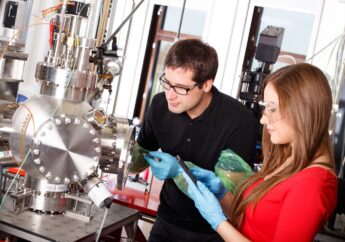Brent Cherne, CPA Shares What You Need to Know About Becoming a Certified Public Accountant
by Mashum Mollah Job & Career Published on: 19 December 2018 Last Updated on: 27 May 2025

Choosing a career as a Certified Public Accountant (CPA) can open up a lot of possibilities for your future, and can offer you a good amount of security and flexibility. CPAs can work in a variety of different fields, helping both individuals and businesses sort out their taxes and finances. If this sounds good to you so far, then read on below to find out more about what you need to do to become one, detailed by Brent Cherne, CPA, FHFMA.
Why you might want to become a CPA:
If you’ve been thinking about becoming a CPA, then what has probably contributed to your interest in this career is the prospect of a good salary. By working as a CPA, you can expect to earn around $75,000 a year in the beginning and, with some years of work experience under your belt, you may even be looking at making over $125,000 a year down the line.
Of course, your career choice shouldn’t hinge solely on the prospect of money. Becoming a CPA also means that you will be dealing with numbers on a daily basis, so this is not the right career to choose if math makes you miserable! However, if you have a knack for numbers and are good at paying attention to detail, then this can be the career for you.
CPAs can select from quite a variety of positions to work in from public accounting, which includes tax return preparation, auditing and advisory services to private accounting, which is typically working for a corporation in roles like a Chief Financial Officer or Controller.
What sort of education you will need:
The current educational requirements to obtain a CPA require you to have earned a bachelor’s degree at a post-secondary institution (typically 120 credit hours) plus an additional 30 credit hours. “You should major in either accounting or finance, and taking courses in related studies is also a good idea,” stated Brent Cherne. A background in areas such as marketing, business, and auditing will give you a great base of knowledge to draw from when you begin working as a CPA.
Since the extra 30 credit hours is over half the credit hours needed to obtain a master’s degree, many individuals seeking a CPA will also complete a Master in Business Administration program since many businesses require you to have a master’s degree, and, even if they don’t, having one may help you achieve a higher salary in the long run. Nevertheless, if you would like to leave school and enter the workforce as quickly as possible, then an undergraduate degree plus the additional credit hours is all you need.
How to become licensed:
Upon completing your bachelor’s degree and the additional 30 credit hours, you won’t be able to start working as a CPA right away. You will first need to begin working in the accounting field. Most states require two years of accounting experience, working under a CPA before you can sit for the Uniform Certified Public Accountant Examination, which will lead you to ultimately earning your CPA license. This work experience will benefit you in many ways including exposure to various aspects of accounting to help you decide what area you may want your career to be in. It will also benefit you by providing references for your next employer and will provide practical experience that is helpful when taking the CPA exam.
You should strive to take the Uniform Certified Public Accountant Examination as soon as you finish your work requirements as it will help immensely to have your coursework somewhat fresh in your mind still. Many people who sit for the exam will take a refresher course just prior to the exam date. The exam itself consists of four parts and is designed to test your knowledge of accounting, auditing, business regulations, and the business environment.
Once you pass the CPA exam, you will need to take either an ethics course or an ethics exam, depending on the rules of your state. Upon successful completion of this ethics component, you will have finally earned your license and will be able to start working as a CPA.
Read Also:



































































































